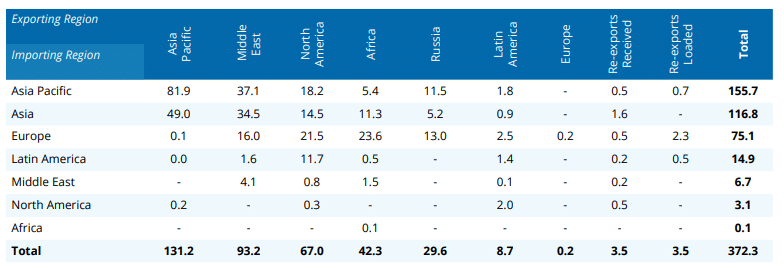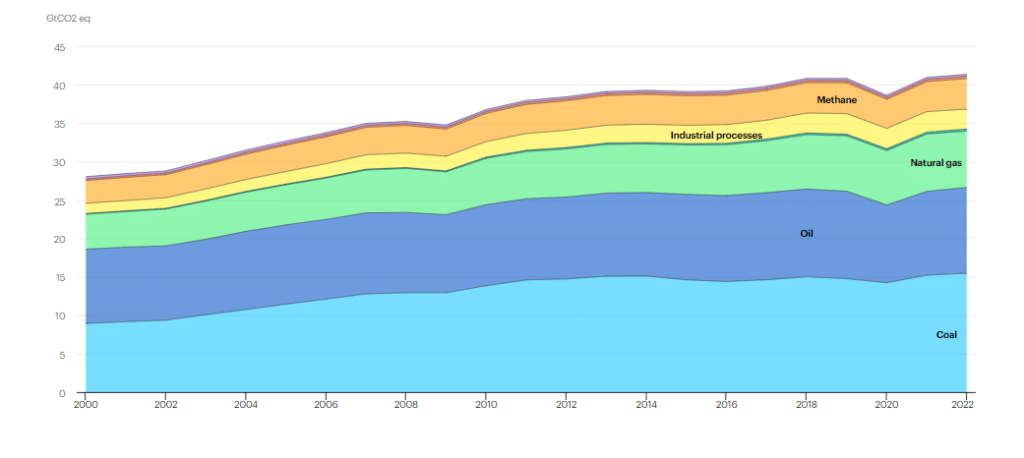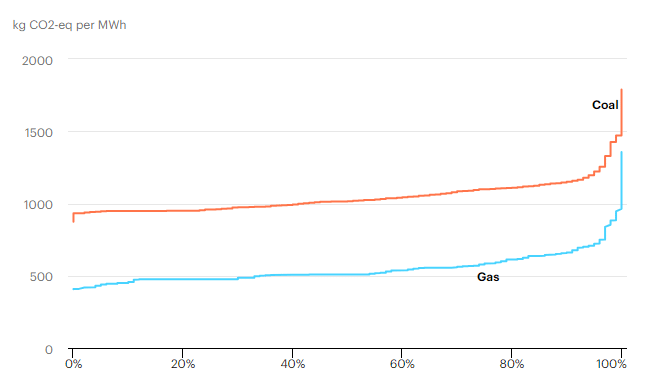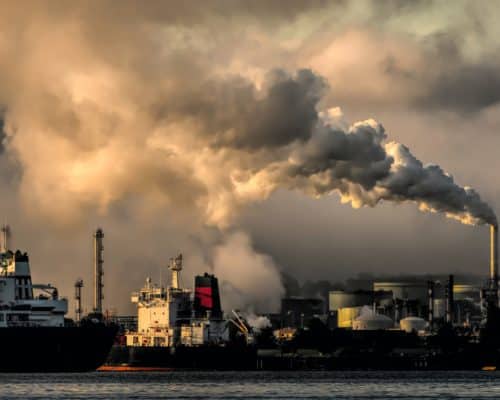Is LNG Clean Energy?
LNG Terminal. Source: Louisiana Illuminator
07 December 2023 – by Eric Koons Comments (0)
Is LNG Considered Clean or Green Energy?
The debate over whether LNG is clean energy is a common theme of global energy discussions, especially with the significant increase in natural gas demand and use in Asia.
This trend is particularly noticeable in countries like China, Japan and South Korea, the world’s leading liquified natural gas importers. The International Gas Union’s 2022 report highlights the region’s dominance in the global LNG trade. The Asia-Pacific accounts for 41.8% of global LNG imports and 35.2% of global exports.

Despite its popularity, LNG’s long-term viability remains contentious. While some view LNG as a cleaner fossil fuel alternative, it is not a net-zero energy source and still contributes to greenhouse gas emissions.
Is LNG Bad for the Environment?
Yes, LNG is bad for the environment. Fossil fuels, including liquefied natural gas (LNG), are known for their negative environmental impacts. The primary issue lies in their combustion process, which releases significant amounts of carbon dioxide (CO2) into the atmosphere. These CO2 emissions are a major contributor to the greenhouse effect and climate change.

According to the International Energy Agency (IEA), the combustion of natural gas released 7.3 gigatonnes (Gt) of CO2 equivalent greenhouse gasses in 2022 – 18% of total global energy-related greenhouse gas emissions. While carbon emissions are a primary concern for LNG use, there are several other negative impacts to consider before deciding if it is a clean energy source.
Methane Emissions and Global Warming
Methane is the primary component of LNG and is a potent greenhouse gas. Although LNG burns cleaner than coal and oil, as it emits less CO2, its production and transportation are known for leaky infrastructure. For example, research shows that LNG pipelines in the US leak 1.2-2.6 million tonnes of methane annually.
Meanwhile, methane is 28 times more potent than CO2 in trapping atmospheric heat over a 100-year timescale. As a result, methane has contributed to 30% of global warming since pre-industrial times, emphasising the gravity of methane emissions in the context of LNG.
Impact on Air Quality and Human Health
When burned, LNG produces nitrogen oxides, which are harmful pollutants contributing to air pollution and respiratory health issues. Air pollution is a significant environmental health risk associated with respiratory infections, heart disease and lung cancer. Studies have shown that areas near natural gas facilities often experience higher levels of air pollutants.
Ecological Disruption and Habitat Change
The construction and operation of LNG facilities often lead to significant ecological disruption. This primarily relates to the alterations of land and marine environments, affecting local wildlife and ecosystems.
For example, LNG terminals require extensive infrastructure, with significant development in shallow coastal waters. These areas are the most productive part of the ocean and are highly susceptible to human influence.
Can Liquefied Natural Gas Be a Viable Transition Fuel?
Despite these environmental concerns, there is an ongoing debate regarding LNG’s role as a transition fuel in the shift towards cleaner energy sources. Proponents argue that it can help bridge the gap as the world shifts to a completely net-zero energy system. Is this true?
Reduced Carbon Dioxide Emissions Compared to Fossil Fuels like Coal and Oil
One of the arguments favouring LNG is its lower emissions compared to other fossil fuels like coal and oil. According to the IEA, natural gas emits 50% less greenhouse gases than coal when used to generate electricity – not including methane leaks. This makes LNG a seemingly attractive option for countries looking to reduce their carbon footprint in the short term.

Versatile, Efficient and Available
LNG is a plentiful energy source with enough extractable deposits to last the world for over 200 years. Plus, it is a versatile fuel that has many use cases. It can be used for power generation, cooking and transportation, which means it is a single fuel type that can replace coal and oil. This allows the development of a single kind of energy economy rather than investing and developing ones for several types of fuels.
Challenges and Trade-offs
However, as mentioned earlier, methane leaks can offset the environmental benefits of lower emissions. Additionally, the substantial investment required to develop LNG infrastructure to meet growing global demand will divert the financial and policy focus from developing renewable energy technologies. This may slow down the rate of renewable energy development due to less financial capital available and near-term profits in the growing LNG market.
LNG can be a transitional fuel in a perfect world but under strict conditions. Effective policy and regulation are essential to ensure that LNG is only a stepping stone toward completely net-zero energy sources. This approach would utilise the immediate benefits of LNG while maintaining a firm commitment to renewable energy development.
LNG: A Double-Edged Sword in the Clean Energy Transition
While less harmful than other fossil fuels like coal and oil, LNG is not a renewable energy source and still poses significant environmental risks. Its role in potentially delaying the shift towards clean, renewable energy sources cannot be ignored.
The global community must carefully evaluate LNG’s position in our energy future, recognising its potential as a transitional fuel but not as a long-term sustainable solution. Pursuing a sustainable, net-zero world necessitates a balanced approach that considers the immediate benefits of LNG against the ultimate goal of transitioning to fully renewable energy sources.
by Eric Koons
Eric is a passionate environmental advocate that believes renewable energy is a key piece in meeting the world’s growing energy demands. He received an environmental science degree from the University of California and has worked to promote environmentally and socially sustainable practices since. Eric’s expertise extends across the environmental field, yet he maintains a strong focus on renewable energy. His work has been featured by leading environmental organizations, such as World Resources Institute and Hitachi ABB Power Grids.
Read more

